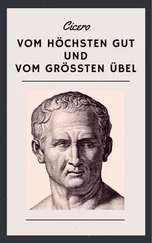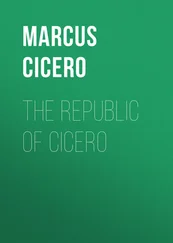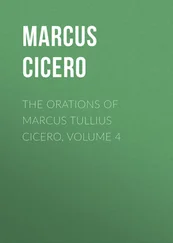Marcus Cicero - The Letters of Cicero, Volume 1
Здесь есть возможность читать онлайн «Marcus Cicero - The Letters of Cicero, Volume 1» — ознакомительный отрывок электронной книги совершенно бесплатно, а после прочтения отрывка купить полную версию. В некоторых случаях можно слушать аудио, скачать через торрент в формате fb2 и присутствует краткое содержание. Жанр: foreign_antique, Философия, foreign_edu, на английском языке. Описание произведения, (предисловие) а так же отзывы посетителей доступны на портале библиотеки ЛибКат.
- Название:The Letters of Cicero, Volume 1
- Автор:
- Жанр:
- Год:неизвестен
- ISBN:нет данных
- Рейтинг книги:4 / 5. Голосов: 1
-
Избранное:Добавить в избранное
- Отзывы:
-
Ваша оценка:
- 80
- 1
- 2
- 3
- 4
- 5
The Letters of Cicero, Volume 1: краткое содержание, описание и аннотация
Предлагаем к чтению аннотацию, описание, краткое содержание или предисловие (зависит от того, что написал сам автор книги «The Letters of Cicero, Volume 1»). Если вы не нашли необходимую информацию о книге — напишите в комментариях, мы постараемся отыскать её.
The Letters of Cicero, Volume 1 — читать онлайн ознакомительный отрывок
Ниже представлен текст книги, разбитый по страницам. Система сохранения места последней прочитанной страницы, позволяет с удобством читать онлайн бесплатно книгу «The Letters of Cicero, Volume 1», без необходимости каждый раз заново искать на чём Вы остановились. Поставьте закладку, и сможете в любой момент перейти на страницу, на которой закончили чтение.
Интервал:
Закладка:
20 January in the Consulship of Q. Metellus and L. Afranius.
XXIV (a i, 19)
TO ATTICUS (IN EPIRUS)
Rome, 15 March
b.c. 60, æt. 46
It is not only if I had as much leisure as you, but also if I chose to send letters as short as yours usually are, should I easily beat you and be much the more regular in writing. But, in fact, it is only one more item in an immense and inconceivable amount of business, that I allow no letter to reach you from me without its containing some definite sketch of events and the reflexions arising from it. And in writing to you, as a lover of your country, my first subject will naturally be the state of the Republic; next, as I am the nearest object of your affection, I will also write about myself, and tell you what I think you will not be indisposed to know. Well then, in public affairs for the moment the chief subject of interest is the disturbance in Gaul. For the Ædui—"our brethren" 124—have recently fought a losing battle, and the Helvetii are undoubtedly in arms and making raids upon our province. 125The senate has decreed that the two consuls should draw lots for the Gauls, that a levy should be held, all exemptions from service be suspended, and legates with full powers be sent to visit the states in Gaul, and see that they do not join the Helvetii. The legates are Quintus Metellus Creticus, 126L. Flaccus, 127and lastly—a case of "rich unguent on lentils"—Lentulus, son of Clodianus. 128And while on this subject I cannot omit mentioning that when among the consulars my name was the first to come up in the ballot, a full meeting of the senate declared with one voice that I must be kept in the city. The same occurred to Pompey after me; so that we two appeared to be kept at home as pledges of the safety of the Republic. Why should I look for the "bravos" of others when I get these compliments at home? Well, the state of affairs in the city is as follows. The agrarian law is being vehemently pushed by the tribune Flavius, with the support of Pompey, but it has nothing popular about it except its supporter. From this law I, with the full assent of a public meeting, proposed to omit all clauses which adversely affected private rights. I proposed to except from its operation such public land as had been so in the consulship of P. Mucius and L. Calpurnius. 129I proposed to confirm the titles of holders of those to whom Sulla had actually assigned lands. I proposed to retain the men of Volaterræ and Arretium—whose lands Sulla had declared forfeited but had not allotted—in their holdings. There was only one section in the bill that I did not propose to omit, namely, that land should be purchased with this money from abroad, the proceeds of the new revenues for the next five years. 130But to this whole agrarian scheme the senate was opposed, suspecting that some novel power for Pompey was aimed at. Pompey, indeed, had set his heart on getting the law passed. I, however, with the full approval of the applicants for land, maintained the holdings of all private owners—for, as you know, the landed gentry form the bulk of our party's forces—while I nevertheless satisfied the people and Pompey (for I wanted to do that also) by the purchase clause; for, if that was put on a sound footing, I thought that two advantages would accrue—the dregs might be drawn from the city, and the deserted portions of Italy be repeopled. But this whole business was interrupted by the war, and has cooled off. Metellus is an exceedingly good consul, and much attached to me. That other one is such a ninny that he clearly doesn't know what to do with his purchase. 131This is all my public news, unless you regard as touching on public affairs the fact that a certain Herennius, a tribune, and a fellow tribesman of yours—a fellow as unprincipled as he is needy—has now begun making frequent proposals for transferring P. Clodius to the plebs; he is vetoed by many of his colleagues. That is really, I think, all the public news.
For my part, ever since I won what I may call the splendid and immortal glory of the famous fifth of December 132(though it was accompanied by the jealousy and hostility of many), I have never ceased to play my part in the Republic in the same lofty spirit, and to maintain the position I then inaugurated and took upon myself. But when, first, by the acquittal of Clodius I clearly perceived the insecurity and rotten state of the law courts; and, secondly, when I saw that it took so little to alienate my friends the publicani from the senate—though with me personally they had no quarrel; and, thirdly, that the rich (I mean your friends the fish-breeders) did not disguise their jealousy of me, I thought I must look out for some greater security and stronger support. So, to begin with, I have brought the man who had been too long silent on my achievements, Pompey himself, to such a frame of mind as not once only in the senate, but many times and in many words, to ascribe to me the preservation of this empire and of the world. And this was not so important to me—for those transactions are neither so obscure as to need testimony, nor so dubious as to need commendation—as to the Republic; for there were certain persons base enough to think that some misunderstanding would arise between me and Pompey from a difference of opinion on these measures. With him I have united myself in such close intimacy that both of us can by this union be better fortified in his own views, and more secure in his political position. However, the dislike of the licentious dandies, which had been roused against me, has been so far softened by a conciliatory manner on my part, that they all combine to show me marked attention. In fine, while avoiding churlishness to anyone, I do not curry favour with the populace or relax any principle; but my whole course of conduct is so carefully regulated, that, while exhibiting an example of firmness to the Republic, in my own private concerns—in view of the instability of the loyalists, the hostility of the disaffected, and the hatred of the disloyal towards me—I employ a certain caution and circumspection, and do not allow myself, after all, to be involved in these new friendships so far but that the famous refrain of the cunning Sicilian frequently sounds in my ears: 133
"Keep sober and distrust: these wisdom's sinews!"
Of my course and way of life, therefore, you see, I think, what may be called a sketch or outline. Of your own business, however, you frequently write to me, but I cannot at the moment supply the remedy you require. For that decree of the senate was passed with the greatest unanimity on the part of the rank and file, 134though without the support of any of us consulars. For as to your seeing my name at the foot of the decree, you can ascertain from the decree itself that the subject put to the vote at the time was a different one, and that this clause about "free peoples" was added without good reason. It was done by P. Servilius the younger, 135who delivered his vote among the last, but it cannot be altered after such an interval of time. Accordingly, the meetings, which at first were crowded, have long ceased to be held. If you have been able, notwithstanding, by your insinuating address to get a trifle of money out of the Sicyonians, I wish you would let me know. 136I have sent you an account of my consulship written in Greek. If there is anything in it which to a genuine Attic like yourself seems to be un-Greek or unscholarly, I shall not say as Lucullus said to you (at Panhormus, was it not?) about his own history, that he had interspersed certain barbarisms and solecisms for the express purpose of proving that it was the work of a Roman. No, if there is anything of that sort in my book, it will be without my knowledge and against my will. When I have finished the Latin version I will send it to you; and thirdly, you may expect a poem on the subject, for I would not have any method of celebrating my praise omitted by myself. In this regard pray do not quote "Who will praise his sire?" 137For if there is anything in the world to be preferred to this, let it receive its due meed of praise, and I mine of blame for not selecting another theme for my praise. However, what I write is not panegyric but history. My brother Quintus clears himself to me in a letter, and asserts that he has never said a disparaging word of you to anyone. But this we must discuss face to face with the greatest care and earnestness: only do come to see me again at last! This Cossinius, to whom I intrust my letter, seems to me a very good fellow, steady, devoted to you, and exactly the sort of man which your letter to me had described.
Читать дальшеИнтервал:
Закладка:
Похожие книги на «The Letters of Cicero, Volume 1»
Представляем Вашему вниманию похожие книги на «The Letters of Cicero, Volume 1» списком для выбора. Мы отобрали схожую по названию и смыслу литературу в надежде предоставить читателям больше вариантов отыскать новые, интересные, ещё непрочитанные произведения.
Обсуждение, отзывы о книге «The Letters of Cicero, Volume 1» и просто собственные мнения читателей. Оставьте ваши комментарии, напишите, что Вы думаете о произведении, его смысле или главных героях. Укажите что конкретно понравилось, а что нет, и почему Вы так считаете.












